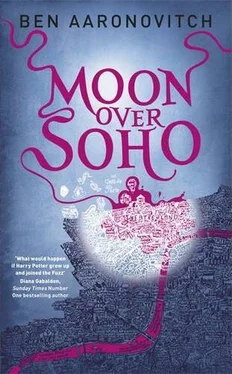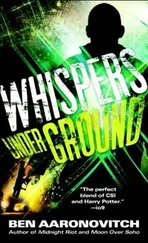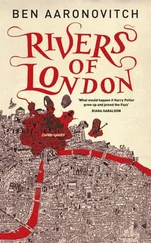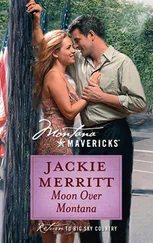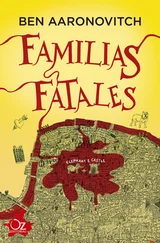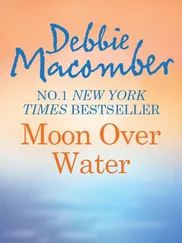“He wants something from us,” said Stephanopoulis. “He wants to be talked into giving it up. The more he thinks we don’t care, the keener he’ll be to talk.”
Smith was back in his blue blazer but the carefully matching button-down shirt was open at the collar and his face was gray and unshaven. We made a big production of putting the tapes in the machine, introducing ourselves, and advising him of his rights.
“You understand that you’re not under arrest and that you may terminate this interview at any point you wish.”
“No, really?” asked Smith.
“You’re also entitled to a lawyer or some other representative of your choice.”
“Yeah, yeah,” said Smith. “Can we just get on with it.”
“So you don’t want a brief?” I asked.
“No I do not want a sodding brief,” said Smith.
“You seem in a hurry. You’ve got somewhere to go?” asked Stephanopoulis. “Somebody waiting for you perhaps?”
“What is it you want?” asked Smith.
“The thing is, we want to clarify your involvement in a number of crimes,” said Stephanopoulis.
“What crimes?” asked Smith. “I was a respectable businessman back then, I owned a club, that was it.”
“Back when?” I asked.
“The old days,” said Smith. “Isn’t that what you’re asking about? Because I was a respectable businessman.”
“But Smithy,” said Stephanopoulis. “I don’t believe in respectable businessmen. I’ve been a copper for more than five minutes. And the constable here doesn’t think you’re respectable either, because it happens he is a card-carrying member of the Workers’ Revolutionary Party and so regards all forms of property as a crime against the proletariat.”
That one caught me by surprise and the best I could manage was “Power to the people.”
Smith was staring at us as if we were both mad.
“So,” I said. “You were involved in a lot of crime back then, Smithy?”
“I wasn’t an angel,” he said. “And I’ll put my hand up to having to deal with some less-than-salubrious elements in my day. That’s one of the reasons I moved abroad — to get away from all that.”
“Why did you come back?” I asked.
“I got a yen for dear old Blighty,” he said.
“Really?” I said. “You told me that England was a shit hole.”
“Well, at least it’s an English-speaking shit hole,” said Smith.
“He ran out of money,” said Stephanopoulis. “Didn’t you, Smithy?”
“Do me a favor,” he said. “I could buy you and all the senior officers in this station and still have enough left over for a flat in Mayfair.”
“Make me an offer,” said Stephanopoulis. “I could get a new chicken run. And her indoors is always asking for an extension to the conservatory.”
Smith, who wasn’t about to say anything that could be misconstrued or digitally edited into an admission of guilt, gave us a suitably ironic smile.
“If it wasn’t the money,” I said, “why’d you come back?”
“I went to Marbella because I’d made my wedge,” he said. “I’d retired. Got myself a nice villa for me and the wife and I ain’t going to kid you life was sweet, away from the rain and all the shit. Everything was good until the fucking ’80s when the Russians started turning up. Once their snouts were in the trough there was shootings and kneecappings and a man wasn’t safe in his own home. I thought, if I’m going to put up with this bollocks I might as well do it back in London.”
“Marbella’s loss is London’s gain,” said Stephanopoulis. “Isn’t that so, Constable?”
“Definitely,” I said. “You bring much-needed folkloric color to the historic byways of London.”
We knew from reports that Stephanopoulis had wrangled out of the Serious and Organized Crime Agency that what had really brought Smith back to London was a series of drug deals that had gone bad. His product had been regularly confiscated in Spain and Amsterdam and when he finally got on the plane to Gatwick all he left behind was debts and his wife, who’d subsequently moved in with a Brazilian dentist. That must have hurt.
“Where you from?” he asked me.
“Where do you think?” I said, because the cardinal unbreakable law of the police interview is never give information away — especially about yourself.
“I don’t know,” he said. “But I don’t seem to know shit anymore.”
“Do you know Jerry Johnson?” asked Stephanopoulis.
“Who the fuck’s that?” he asked but he’d flinched and he knew we’d seen it.
“Detective Chief Inspector Johnson,” I said and pushed the photograph from Johnson’s house in front of Smith. He looked surprised to see it.
“This is about Greasy Johnson?” asked Smith. “That prick?”
“So you did know him?” I asked.
“He used to wander around Soho with his hand out,” said Smith. “Just like the rest of the filth. Just like they do now, in fact. How is old Greasy? I heard he got the boot.”
I had a nice crime scene photograph of Jerry Johnson lying naked on his bed minus his wedding tackle all ready to slide under Smith’s nose but Stephanopoulis tapped her finger once on the table, which meant for me to hold back. I looked closely at Smith and saw his leg had picked up the same tremor I’d seen in his office. We wanted him scared but we didn’t want him so scared that he clammed up or tried to do a runner.
“He was murdered yesterday,” said Stephanopoulis. “At his home in Norfolk.”
Smith’s shoulders relaxed. Relief, defeat, despair? I couldn’t tell.
“You knew about it in advance,” I said. “Didn’t you?”
“Don’t know what you’re talking about.”
“Yesterday,” I said. “When I came calling — that’s why you had No-Neck on the door, that’s why you were sweating.”
“I’d heard some whispers,” said Smith.
“What kind of whispers?” asked Stephanopoulis.
“That somebody I thought was dead might not be,” he said.
“This dead bloke got a name?” asked Stephanopoulis.
“Johnson was in with this strange bloke — like a magician, he was,” said Smith.
“Did card tricks, did he?” asked Stephanopoulis.
“Not that kind of magician,” said Smith. “This was like real voodoo magic only it was a white geezer.”
“You said it was like voodoo?” I asked. “Did the man call on loas to possess him, did he carry out rituals and sacrifices?”
“I don’t know,” said Smith. “I steered well clear.”
“But you thought he could do real magic?” I asked.
“I don’t think,” he said. “I saw it.”
“Saw what?”
“At least I think I saw it,” said Smith and he seemed to shrink down into the collar of his shirt. “You’re not going to believe me.”
“I’m not going to believe you,” said Stephanopoulis. “But Constable Grant here is actually paid to believe in the unbelievable. He also has to believe in faeries and wizards and hobgoblins.”
“And hobbitses,” I said.
Smith bristled. “You think this is funny. Larry Piercingham, who they used to call Larry the Lark because he liked to do his rounds early. Remember him?”
“I’m not as old as I look,” said Stephanopoulis as I noted the name.
“I don’t know the details but he got on the wrong side of the magician …”
“Did he have a name?” asked Stephanopoulis.
“Who?”
“This magician, what was his name?”
“Don’t know,” said Smith. “When we talked about him he was just the magician and mostly, all things being equal, we didn’t talk about him at all.”
“So what happened to Larry the Lark?” I asked.
“Larry was in with a hard mob from Somers Town, blaggers and handle men and the like. The sort of people that used to do proper scores back in the old days. These were not people that you disrespected — you understand?” asked Smith.
Читать дальше
